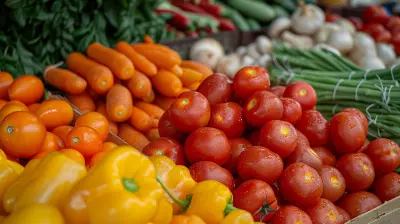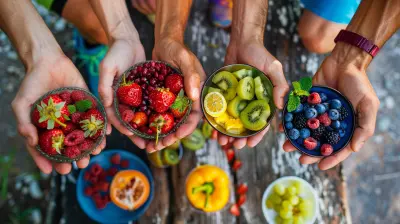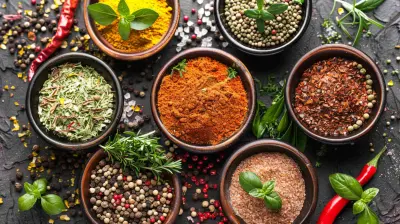Can a Plant-Based Diet Help Manage Type 2 Diabetes?
29 August 2025
Let’s face it—Type 2 diabetes is no joke. It’s a chronic condition that creeps up on millions of people and can completely change how they live, eat, and function. But here’s the thing: what if the key to better blood sugar control is right on your plate? And what if that plate was filled with colorful veggies, whole grains, legumes, fruits, and nuts instead of meat and dairy?
You’ve probably heard whispers about plant-based diets being a game-changer for people with Type 2 diabetes. But is it just another trendy health craze, or does it really have some solid science behind it?
Buckle up, because we’re about to unpack everything you need to know—in plain English. We're going deep into what a plant-based diet is, how it affects blood sugar, what the research says, and whether it might be the lifestyle tweak you didn’t know you needed.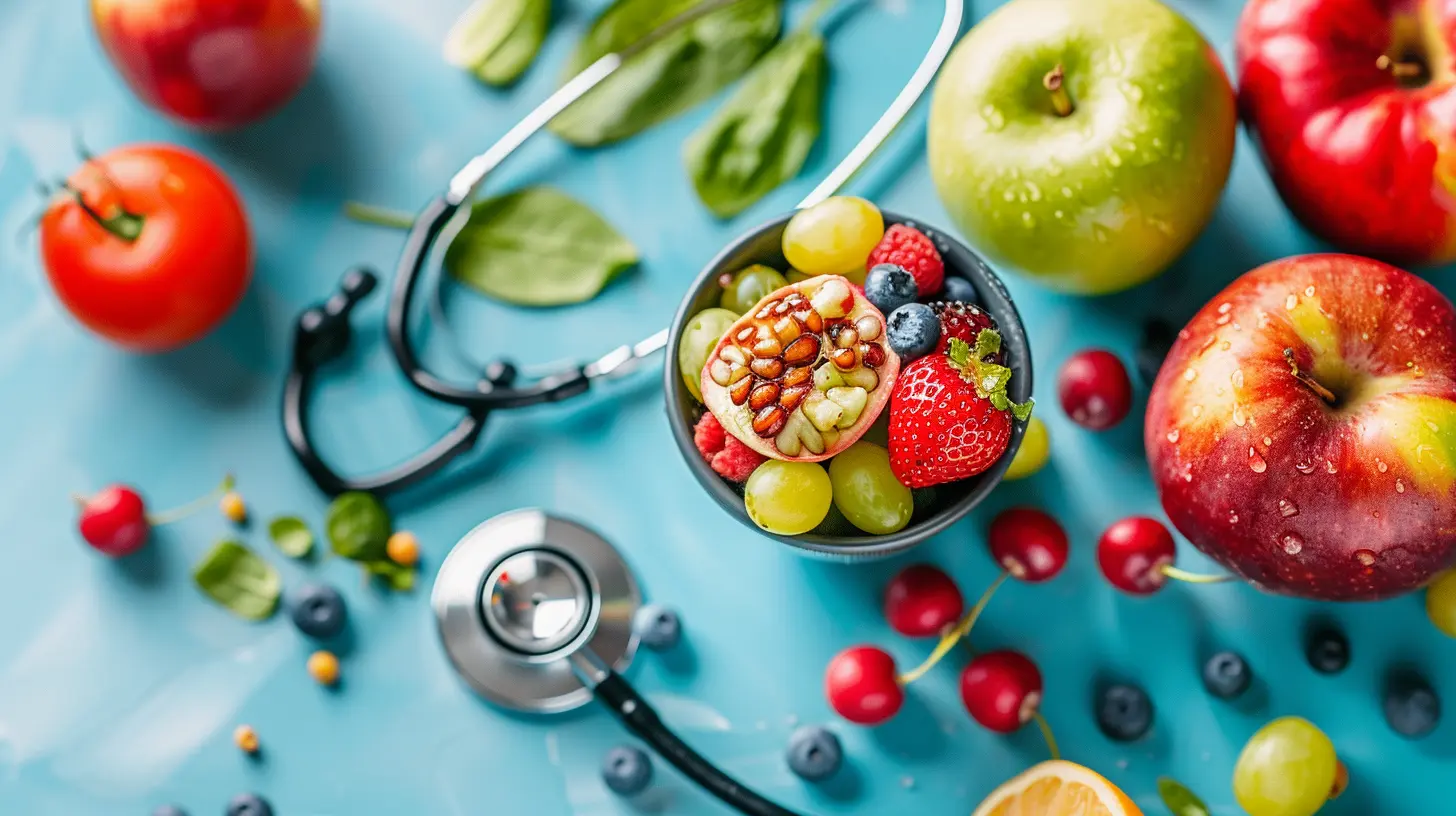
What Is a Plant-Based Diet, Anyway?
Before we dive into the diabetes stuff, let’s get our definitions straight.A plant-based diet focuses on—you guessed it—plants! That means:
- Vegetables
- Fruits
- Legumes (like lentils, beans, chickpeas)
- Whole grains (like oats, quinoa, brown rice)
- Nuts and seeds
Some people go fully vegan (no animal products at all), while others might still include small amounts of animal products like dairy or fish on occasion. The common thread? Plants are the star of the show.
So, what does this have to do with diabetes? A lot, actually.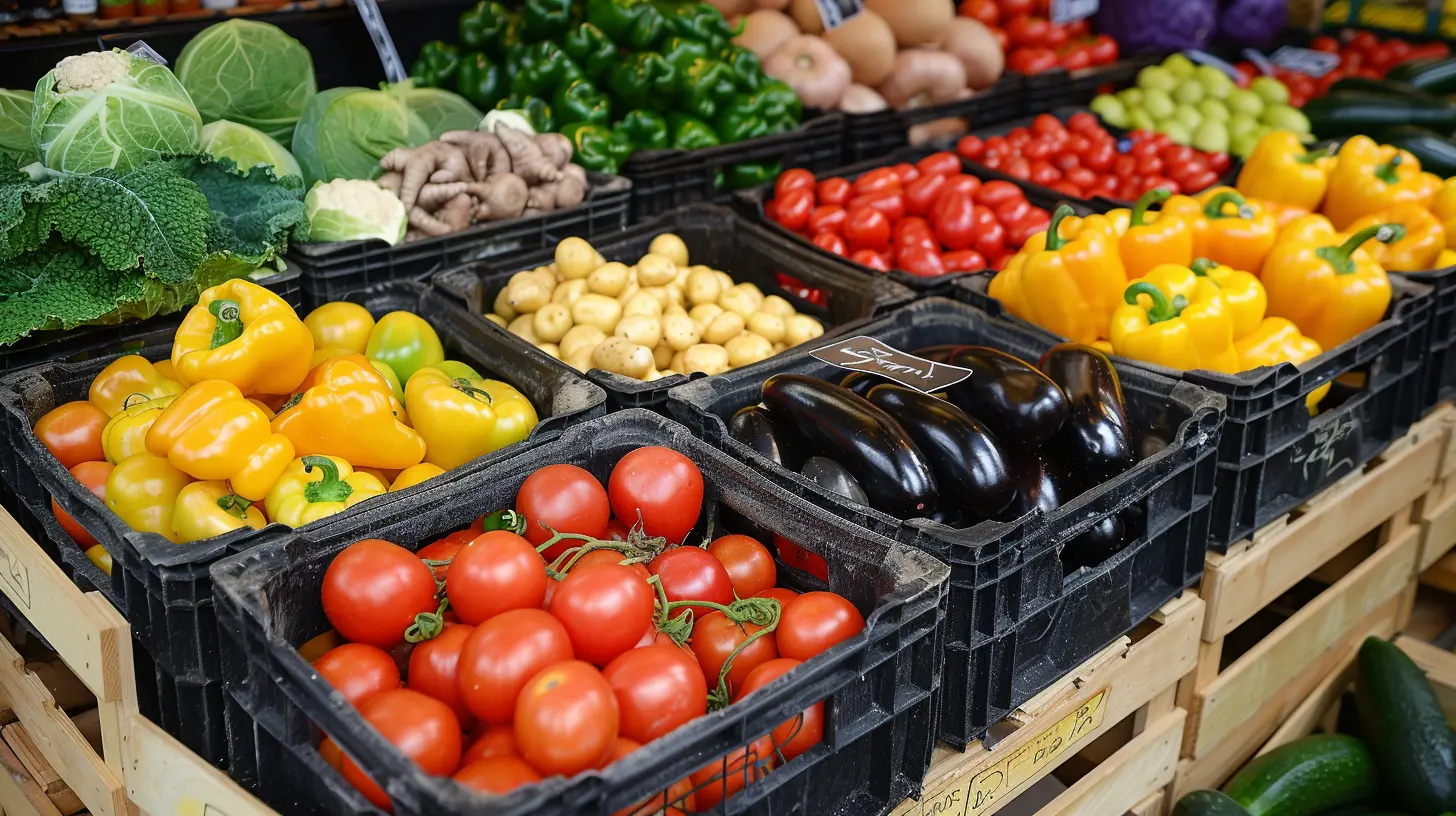
How Type 2 Diabetes Works (In Simple Terms)
Let’s break this down real quick.Type 2 diabetes messes with the way your body handles glucose (aka sugar) in your blood. Normally, your pancreas pumps out a hormone called insulin, which helps move glucose from your blood into your cells, where it's used for energy.
But if you’ve got Type 2 diabetes, your body either:
1. Doesn’t produce enough insulin, or
2. Your cells stop responding properly to insulin (this is called insulin resistance)
The result? Your blood sugar levels stay higher than they should, which over time can cause all sorts of problems—everything from nerve damage to heart disease.
That’s where diet comes in.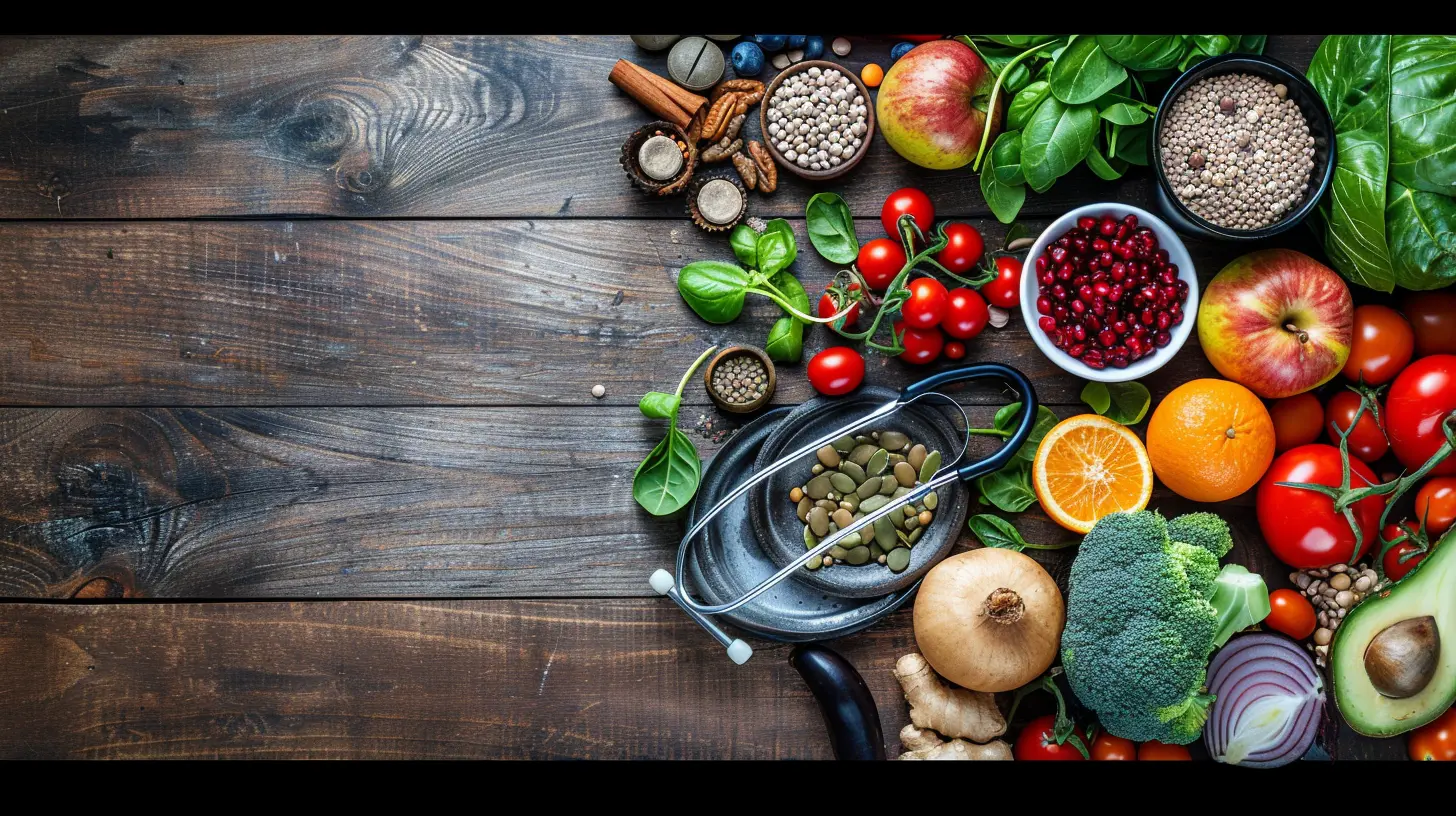
Food and Blood Sugar: What’s the Connection?
Think of your body like a car. If you put bad fuel in it, it’s going to run poorly. The same goes for food and blood sugar.When you eat foods high in refined carbs and sugars (think white bread, pastries, soda), your blood sugar spikes—then crashes. Your poor pancreas works overtime trying to keep up.
A plant-based diet, on the other hand, is rich in fiber, complex carbs, and antioxidants. These foods digest more slowly, don’t cause blood sugar spikes, and even help improve insulin sensitivity.
And unlike heavy animal-based diets, plant foods don’t come with a side of saturated fat that can clog up your cells and interfere with insulin.
What the Science Actually Says
Don’t just take my word for it—there’s some pretty convincing research out there.1. Lower A1C Levels
Your A1C is a blood test that looks at your average blood sugar levels over 2–3 months. Lower numbers are better.Studies have shown that people who switch to a plant-based diet often see their A1C drop significantly—sometimes by as much as 1.2 percentage points. That’s a big deal! It's on par with some medications.
2. Weight Loss Without Starving
Most people with Type 2 diabetes are either overweight or obese, and that extra weight can make blood sugar management harder. But here’s a fun fact: people on plant-based diets often lose weight—even without counting calories.Why? Plants are naturally lower in calories and fat and higher in fiber, so they fill you up faster and keep you full longer. It's not magic. It’s just good food doing its job.
3. Better Heart Health
Let’s not forget that diabetes and heart disease often go hand in hand. A plant-based diet can lower LDL (bad) cholesterol, improve blood pressure, and reduce inflammation—all of which are super important if you have diabetes.Real Talk: It’s Not a Cure, But It Can Help
Let’s be clear: a plant-based diet is not a silver bullet. It won’t "cure" Type 2 diabetes (nothing really does). But it can help you manage it more effectively, potentially reduce your need for medication, and improve your overall health.Think of it as a tool in your toolbox. A powerful one.
The Good Stuff: Benefits of a Plant-Based Diet for Diabetes
Let’s summarize all the reasons this approach might be worth a shot:- Stable blood sugar — no more wild rollercoaster rides
- Weight loss — without the hangry struggles
- Lower cholesterol and blood pressure
- Reduced inflammation
- More energy — because who wants to nap all day?
- Lower risk of complications — like eye problems, nerve damage, kidney issues
The Not-So-Good Stuff: Challenges and Things to Watch Out For
Alright, I promised honesty—so let’s talk about the flip side.1. It Takes Planning
You can’t just cut out meat and expect miracles. You need to replace it with nutritious, whole plant foods. Swapping a cheeseburger for fries and soda? That’s not the goal here.2. Nutrient Gaps
Some nutrients can be a little harder to get on a strict plant-based diet, like:- Vitamin B12
- Iron
- Calcium
- Omega-3s
Easy fix? Take supplements if needed, eat a variety of foods, and maybe talk to a dietitian.
3. Social and Cultural Hurdles
Let’s be real—food is personal. Changing your diet can be tough socially, culturally, and emotionally. Don’t beat yourself up if it takes time.Tips for Getting Started (Without Losing Your Mind)
Thinking about giving plant-based a whirl? You don’t have to go full vegan overnight. Start slow. Make it doable.Tip #1: Try “Meatless Mondays”
One day a week. That’s it. Try a new recipe with legumes instead of meat.Tip #2: Focus on What You Can Eat
Don’t obsess over what you’re giving up. Think about all the delicious foods you’re adding—like creamy hummus, spicy lentil curry, or rainbow veggie stir-fry.Tip #3: Read Food Labels
Even plant-based foods can be loaded with sugar or refined carbs. Stick to whole, minimally processed foods when you can.Tip #4: Find Your Support Tribe
Whether it’s an online group, a friend, or a dietitian—don’t try to do this alone. Having someone in your corner makes it so much easier.What Doctors and Dietitians Say
Most healthcare professionals agree: adding more plants into your diet is almost always a good move—especially for managing chronic conditions like Type 2 diabetes.Many even recommend plant-based eating as a first-line strategy to reverse insulin resistance and improve metabolic health.
So if you're thinking you need to try something new, you’re not crazy—you’re probably ahead of the curve.
Can a Plant-Based Diet Reverse Type 2 Diabetes?
This is the million-dollar question. And the answer is... kind of.Some people have been able to put their diabetes into remission with a plant-based diet, meaning their blood sugar levels return to a non-diabetic range without medication.
But that’s not the norm for everyone. Factors like how long you’ve had diabetes, your genetic background, and overall lifestyle (like exercise and sleep) all play a role.
Still, even if you don’t achieve full remission, many people see dramatic improvements in:
- A1C levels
- Weight
- Energy
- Medication needs
And that’s totally worth it.
Will This Work for Everyone?
Nope. Just like shoes, diets aren't one-size-fits-all.Some folks thrive on a plant-based diet, while others feel better with a bit of animal protein. The beauty is, you can experiment and customize.
That said, almost everyone can benefit from more fiber, less processed food, and more veggies. And that’s really the heart of a plant-based way of eating.
Final Thoughts: Is It Worth a Try?
If you're living with Type 2 diabetes and feel like you’re stuck in a loop—frustrated by numbers, overwhelmed by meds, unsure what to eat—it might just be time to look at food differently.A plant-based diet isn’t a magic cure… but it can be a powerful tool to help you take back control of your health—one bite at a time.
So go ahead. Add some beans to your plate. Swap that steak for stir-fry. You’ve got more power than you think—and it literally starts with what you eat.
all images in this post were generated using AI tools
Category:
DiabetesAuthor:

Madeline Howard
Discussion
rate this article
1 comments
Alvin McGill
Absolutely! A plant-based diet can lower blood sugar and improve insulin sensitivity. It’s not just about what you eat, but how it fuels your body. Greens over grains, anyone?
September 7, 2025 at 3:30 AM

Madeline Howard
Absolutely! A plant-based diet rich in greens can certainly aid in managing type 2 diabetes by improving blood sugar levels and insulin sensitivity. Your food choices are key to fueling a healthy body!
